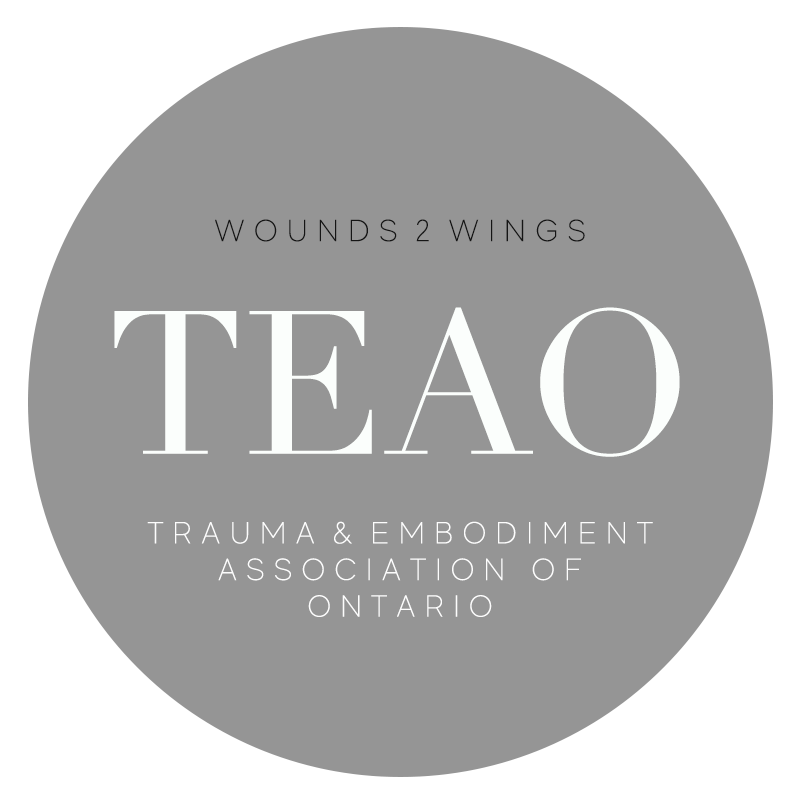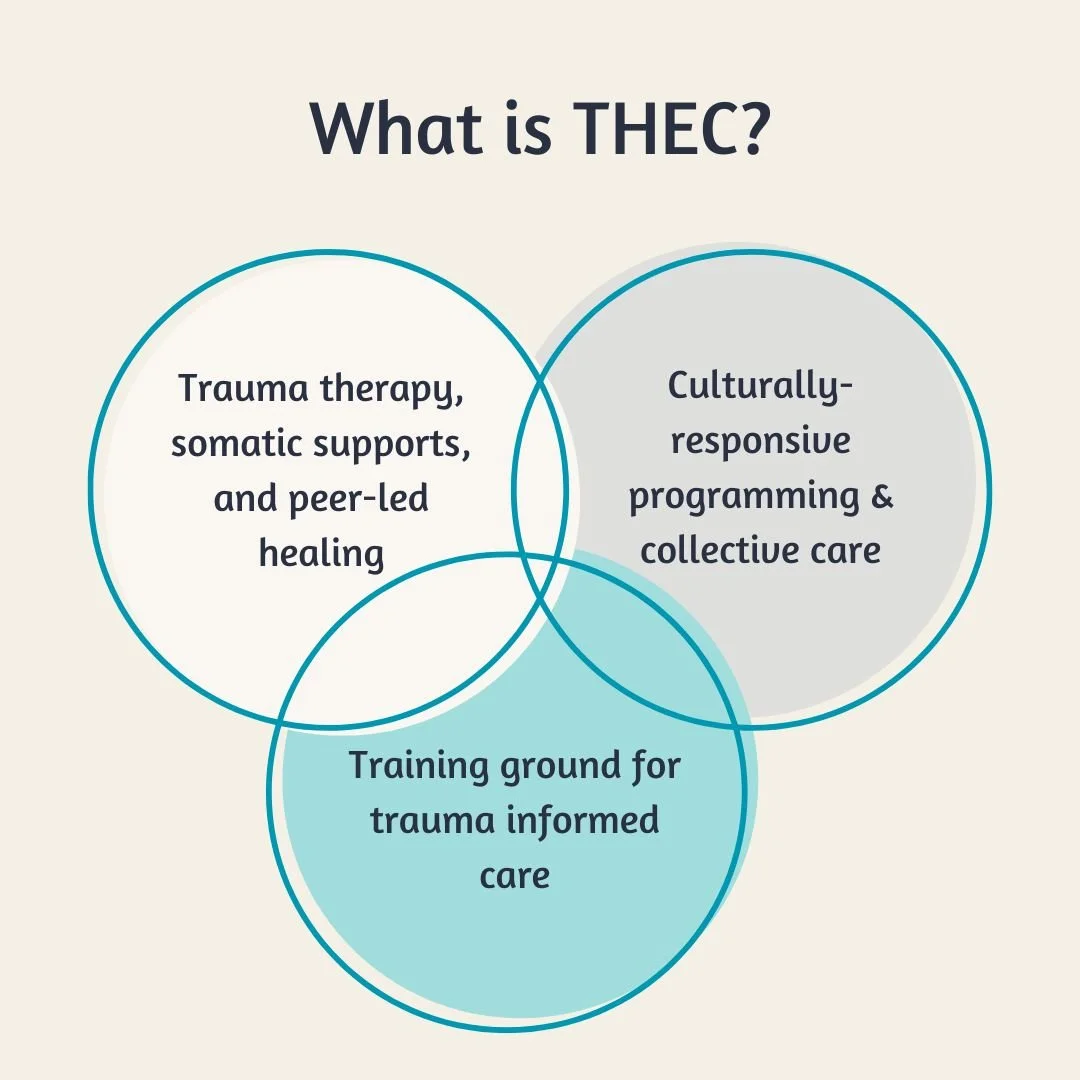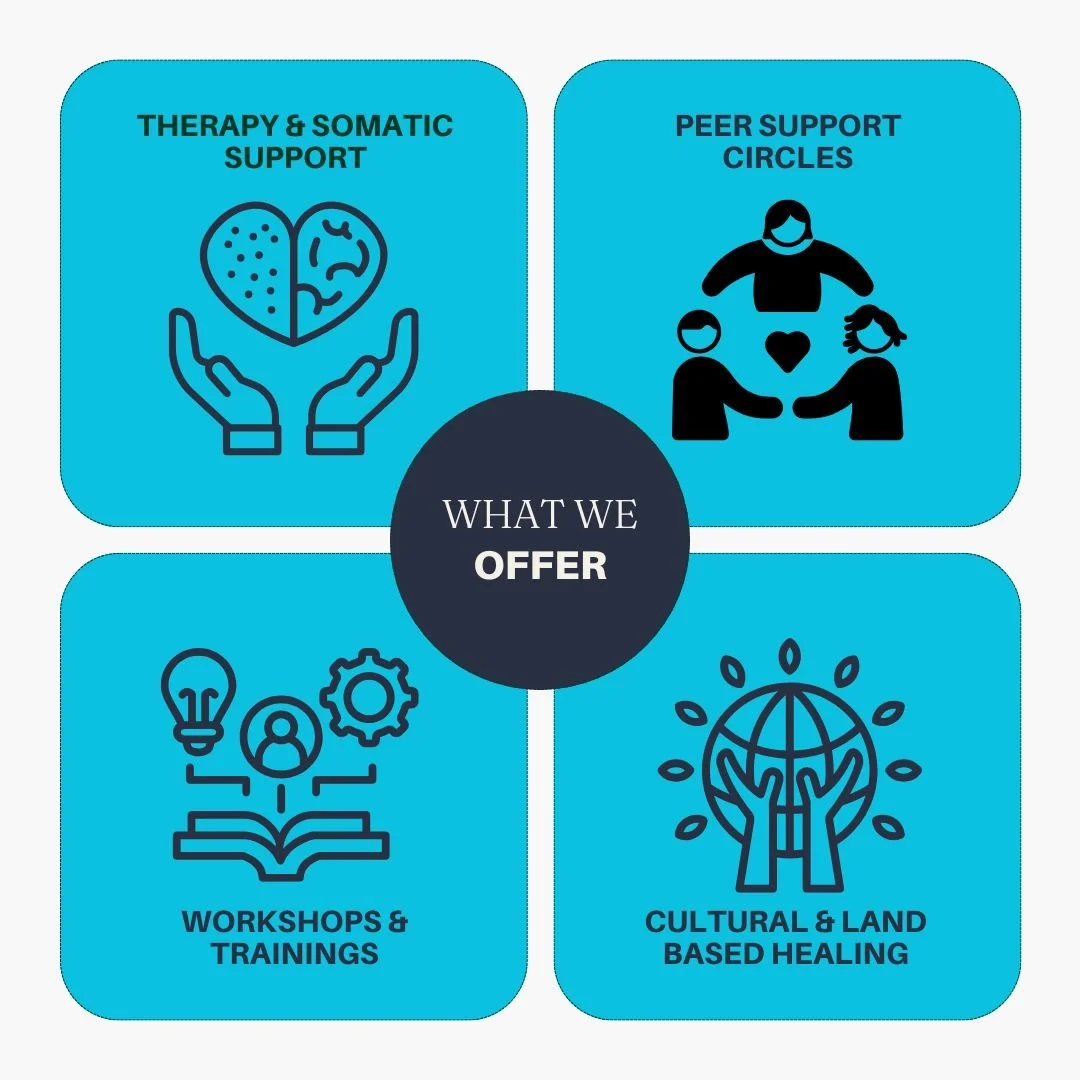Trauma Health and Embodiment Centre (THEC)
A Space for Healing Rooted in Community, Culture, and Care.
The Trauma Health and Embodiment Centre (THEC) is a bold and necessary response to the urgent gaps in accessible, trauma-informed, and culturally safe mental health care for racialized, Indigenous, and marginalized communities across Ontario.
As an initiative of TEAO Canada (Trauma and Embodiment Association of Ontario), THEC embodies our commitment to creating a world where healing is not a privilege — but a right.
Our Purpose
THEC will exist to transform how trauma is understood and addressed in Canada. We will serve individuals impacted by systemic oppression, intergenerational trauma, and emotional wounds — especially those often left out of mainstream mental health systems.
We will bridge the divide between clinical therapy, somatic healing, and cultural wisdom as we work within the gaps of the mental health care system — recognizing that trauma lives in the body, spirit, and nervous system, and so must our responses.
What is THEC?
THEC is a community-rooted facility for trauma-responsive mental health, holistic wellness, and embodied care practices. Think of THEC as a body hospital for mental health & training facility .
This space will be intentionally designed to:
Provide low-barrier access to trauma therapy, somatic supports, and peer-led healing for those impacted by systemic violence, intergenerational trauma, and marginalization.
Offer culturally-responsive programming that honours ancestral practices, collective care, and the wisdom of the body.
Serve as a training ground for therapists, peer supporters, and frontline workers who are committed to practicing trauma-informed care through an anti-oppressive, decolonized lens.
Our Core Values
Empowerment: Equipping people with the tools to reclaim their healing.
Community: Healing happens together — not in isolation.
Truth & Compassion: We honour stories with empathy and speak truth to systems.
Diversity: We welcome and celebrate the richness of racial, gender, and cultural identities.
Holistic Healing: We integrate mind, body, and spirit in every offering.
Why THEC Matters
Mainstream mental health systems often pathologize survival, ignore cultural and historical context, and fail to meet the needs of those living with the ongoing impacts of colonization, racism, poverty, and gendered violence.
At THEC, we believe:
Trauma is not just individual — it is systemic, relational, and embodied.
Healing is not linear — it’s cyclical, cultural, and community-held.
Wellness must be inclusive, accessible, and rooted in justice.
what we offer
Our services are growing — and grounded in co-created care. THEC will offer:
Therapy & Somatic Support: Trauma-informed psychotherapy, body-based practices, and healing sessions grounded in consent, care, and cultural safety.
Peer Support Circles: Facilitated spaces for connection, co-regulation, and shared storytelling among individuals with lived experience.
Workshops & Training: Community education, peer certification, and practitioner development focused on trauma-responsive, anti-racist, and embodied healing.
Cultural & Land-Based Healing: Partnering with Indigenous and Black-led organizations to offer ceremony, land connection, and ancestral care practices.
Our Vision
THEC is more than a centre or facility— it is a movement toward reclaiming radical rest, reconnection, and relational repair.
It is a space where:
Healing isn’t rushed, and voices aren’t silenced
Bodies are honoured in all their forms, stories, and needs
Community isn’t an afterthought — it is the medicine
Big Picture Vision for THEC
THEC will:
Become a national model for integrated, trauma-informed, community-rooted care
Deliver programming that merges clinical psychotherapy with somatic practices, ancestral traditions, and peer-led support
Offer a physical and mobile space that meets people where they are — spiritually, emotionally, culturally, and geographically
Catalyze systemic change in how trauma care is offered across sectors
How You Can Support
THEC will be made possible through grants, community fundraising, and generous partnerships. To support our vision or get involved:
Location & Timeline
We are currently in the preparation for the development phase of our potential physical space 2026-27, with mobile and pop-up programming already underway. We are working toward a permanent location in the Region of Waterloo that will serve as a hub for trauma-responsive, embodied care.
Stay tuned for updates — and join us in shaping a future where care is collective, embodied, and rooted in justice.








